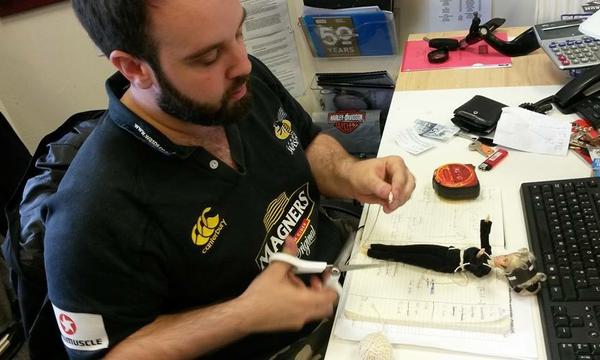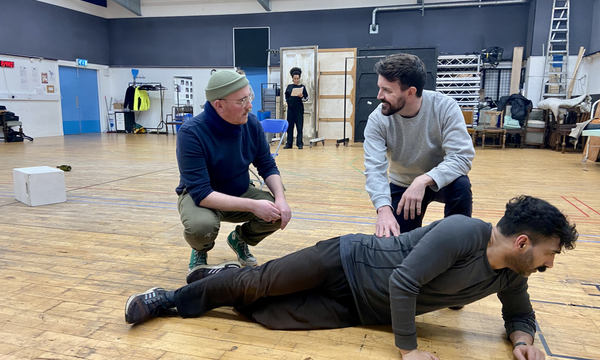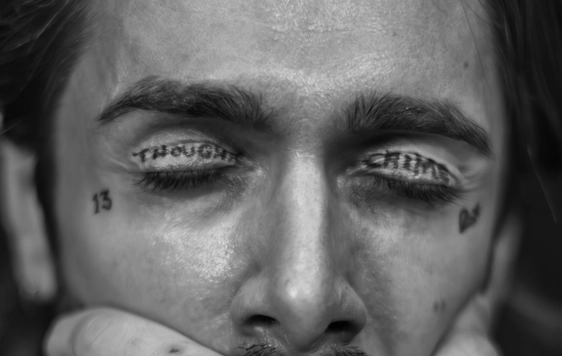News Story
When did you first come across this as a job? How did you get into it?
I learnt about dramaturgy and literary roles in my fourth year at the University of Edinburgh studying English Literature during an undergraduate module in playwriting taught by Nicola McCartney. It quickly became clear that I didn’t want to write a play myself but that I was unusually interested in supporting my classmates realise their ideas. Nicola was incredibly generous with her time and advice; after the course had finished she gave me my first paid dramaturgical work. Following graduation, I studied for an MSc in Playwriting which included a placement at Playwrights’ Studio, Scotland where I then worked for two years. From there, I moved to The Lyceum at the beginning of David Greig’s first Season. I had an idea that David would be needing literary support and I wanted any experience I could get in a producing theatre so I took a job in The Lyceum’s fundraising department. I unofficially began supporting David’s literary work until it became clear that this work required a dedicated role rather than the bits of time I could carve out of my evenings and lunch breaks. In September 2019, I became The Lyceum’s first Literary Associate.
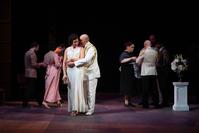
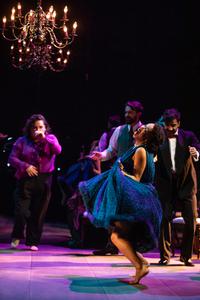
What was it about this role that interested you?
I find that a really hard question to answer – for me it’s unfathomable that everyone doesn’t want to do this role. It’s a mix of creative work and producing which reflects me exactly; I relish being creative but am also viciously organised. There are very few literary roles in theatres in Scotland - at the moment there are just two in the whole country so it’s at the front of my mind that it’s an incredible privilege to have this job.
For those of our readers who don’t know what you do, can you explain it please.
I’d like to put everyone reading this at ease here – very few people ever have a clue about my job. My family are pretty sketchy on the details… my areas of responsibility are primarily:
- artist development (where we support theatre artists to develop their skills),
- commissioning (contracting playwrights to plays for The Lyceum and supporting them through the redrafting process),
- research and development (where we bring other creatives into a process to learn about the play)
- assisting with programming (choosing which shows we make and when)
How would you describe your role throughout the process of developing a show? From meeting to writing to rehearsal room, what is your approach?
Sometimes I liken it to being a book editor but for a play. It’s not a perfect analogy but it tends to help people imagine the behind the scenes person who is supporting a play without being the writer or the director. My involvement varies greatly depending on the project: sometimes I’m very close to a play and will be having in depth discussions about every draft, I will be in R&D and will be in the rehearsal room too. Other times I’m there as a touchpoint and source of support but someone else (usually Zinnie or David or the play’s director or a freelance dramaturg) is leading on the creative development.
What makes a successful collaboration between dramaturg and director? How would you describe the relationship?
I would say that trust is at the heart of any creative collaborative relationship – a dramaturg is sometimes described as a ‘trusted other’ or an ‘outside eye’.

What do you look for when finding new work to develop for the Lyceum?
Pre-pandemic, we had a really clear vision about inviting new audiences to The Lyceum: we made a play about climbing, one about space, we did book and film adaptions. Post-pandemic, we’re still trying to make work in this vein but the context is exponentially more challenging.
What is your favourite play you have worked on?
I absolutely can’t answer that! Though I will tell you that the first plays that came to mind are ones we have not yet staged…
What is your favourite play you have read or seen?
I’m a total theatre cliché in that I love Thornton Wilder’s Our Town which is both painfully sentimental and structurally exciting. I’ve seen it quite a few times now and it’s a show I will travel to see. Untitled Project’s Paul Bright’s Confessions of a Justified Sinner is another favourite; I’m a huge fan of adaptions and think that is one of the cultural bedrocks of our time. Many works get to live as a TV show, a film, a book and as theatre which is simultaneously cynical and exciting. Two plays that I’ve only read but am desperate to see are The Flick by Annie Baker and The Writer by Ella Hickson.
What is your favourite part of your job?
I love doing R&D on a play. The Lyceum’s way of working is usually script-led which means these processes have the writer at their heart; this is when the play is opened up further to collaborate with other creatives. Hearing something that you may have talked about for YEARS in the room with other people bringing their skills, experience and insights is joyful. Actors are incredible and the amount they give to exploring ideas and sharing their thoughts is such a gift.
What part of your job could you do without?
The flip side of my love of adaptations is that I’m responsible for securing the rights to adapt existing works. It’s never straightforward and usually requires me to be uncomfortably persistent.
How many plays do you read a month?
I should probably read more but it’s probably about 8 plays a month. On top of that I read books (novels and non-fiction) and watch films for various Lyceum projects too.
Any advice for someone wanting to follow in your footsteps?
Reading and seeing as much theatre as possible. You can watch a lot online now too for little or no money so grab the opportunity whenever you can.
